From Oysters to Sturgeon: Celebrating A Variety of Ocean Wise Seafood on Vancouver Menus
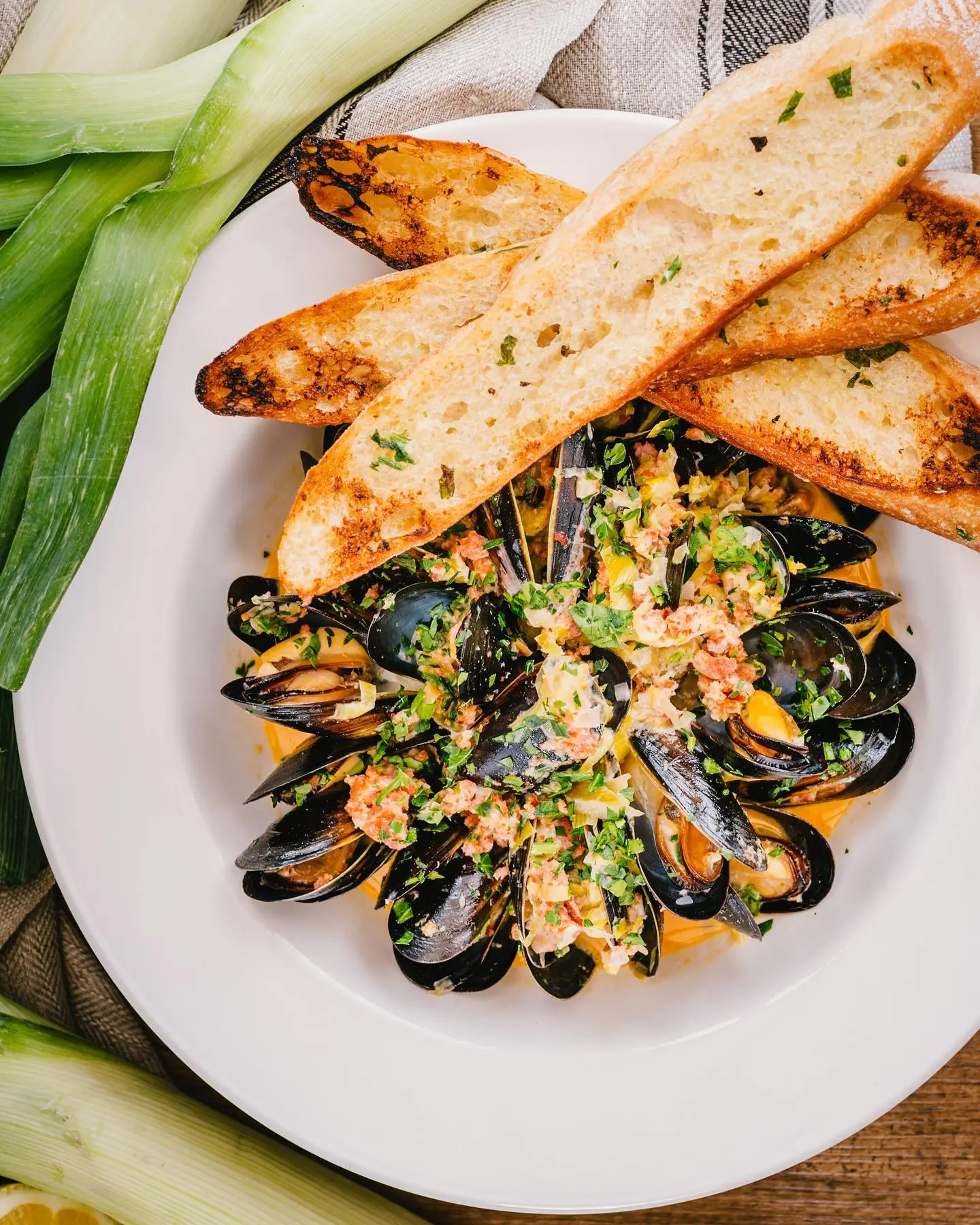
Browsing the seafood items on a restaurant menu can be a daunting choice. You want to make the right, sustainable choice but as an everyday consumer, you probably don’t have the time and expertise to wade through all the complex and ever evolving research.
Fortunately, you may have noticed a circular symbol with a stylized fish and the words “a sustainable choice” on it. “Our logo is a go-to guide that this is a good choice for the ocean. It gives consumers that peace of mind so they don’t have to dig through all the science themselves,” says Nathalie Graham, Senior Accounts Specialist (Western Canada) at Ocean Wise.
The sustainable seafood program, which launched in 2005 in Vancouver with just a handful of restaurant partners, has grown to over 700 partners in 1300 location nation-wide, now also encompassing food trucks, grocery stores, and suppliers.
But how exactly does a particular dish receive the Ocean Wise symbol? And how have notions of sustainability progressed in a city known for its delicious, abundant seafood?
Graham explains that the Ocean Wise Seafood Program depends heavily on the relationships built between restaurants and Ocean Wise. Restaurants usually become interested in Ocean Wise through word of mouth, and also in response to customers wanting some clear reassurance about their seafood sourcing.
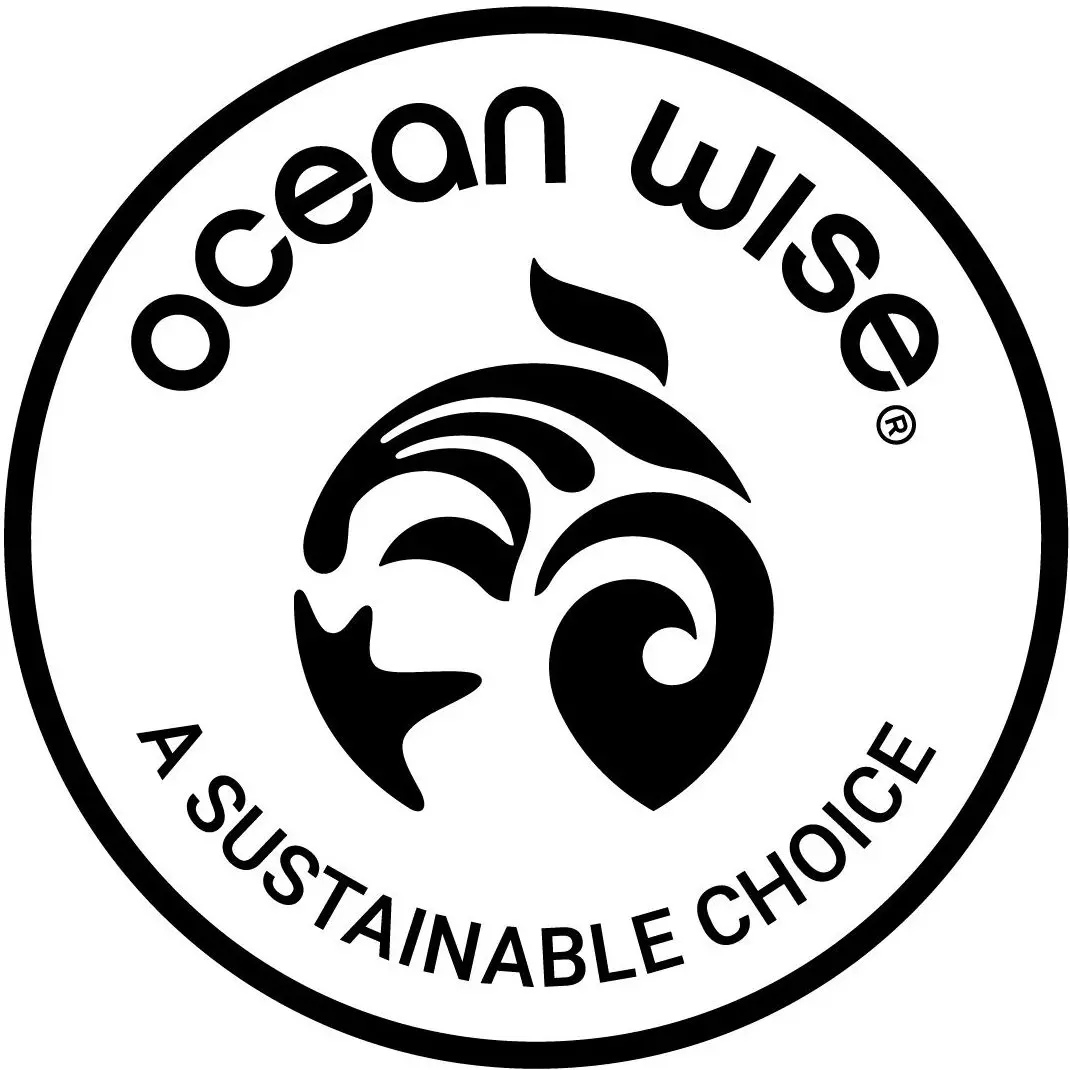
Once they’ve signed up, Ocean Wise performs an in-depth audit of the seafood items on a restaurant’s menu, checking detailed information, such as the type of seafood, any eco-certification attached to it, whether it’s wild or farmed, and how/where it’s caught or harvested.
Only items deemed to be Ocean Wise recommended are given the program’s stamp of approval and can carry the logo, while for other seafood, Ocean Wise will work with the restaurant to find sustainable options. In order to be an Ocean Wise partner, a restaurant needs to carry at least one sustainable menu item–and a willingness to build on this first step. “We really strive for progress over perfection. We take them on that journey from, for example, two fifths sustainable products to hopefully becoming one hundred percent sustainable over the course of their partnership with us,” says Graham.
The process is simple and straightforward for restaurants and diners but actually represents the culmination of tireless research by Ocean Wise on farmed and wild-caught seafood sources. Knowledgeable staff arrive at an assessment about a seafood product by compiling scientific data from a number of different organizations. Wild-caught seafood is rated out of 5 based on four key parameters: the health of the stock, bycatch considerations, the quality of the fishery management, and the impact of harvesting on habitat. Ocean Wise reaches a binary yes or no conclusion so “we only recommend the highest performing fisheries and aquaculture,” says Graham.
Robert Clark, now chief culinary officer at Organic Ocean Seafood, is the pioneer of sustainable seafood in Vancouver restaurants. He championed the movement as executive chef at the former C Restaurant and co-founded the Ocean Wise Seafood Program with Jason Boyce from the Vancouver Aquarium. “Vancouver can be very proud of the Ocean Wise Program. It started in the restaurants here. And I think it demonstrates that chefs and the hospitality industry here are concerned about the environment, quality, and sustainability and that they want to promote positive change in the way our food is produced,” says Clark.
Clark believes strongly that a commitment to sustainability translates into much higher quality seafood. As opposed to taking seafood indiscriminately and destructively, sustainable harvesting treats seafood with care on an individual basis, like with hook and line fishing. And post-harvest, the seafood will also be treated better. “When you’re harvesting it responsibly, you’re already in that head space that you want to be respectful of the product,” he says. Clark adds that there’s a misconception that fresh seafood is better, when, in fact, seafood flash frozen just after catch prevents the degradation of quality that happens the longer seafood sits.
While Vancouver is iconic for its salmon, the current precarity of Pacific salmon stock means spotlighting other wonderful seafood products that are sustainable and equally west coast. Clark and Graham are enthusiastic about BC farmed shellfish like mussels, clams, geoduck, and for Clark, particularly oysters. “The different farming techniques and the different waters they’re grown in create such a variety of flavours. That’s something to be celebrated,” says Clark. Even though consumers often automatically dismiss farmed seafood, in fact, farmed bivalves can provide benefits to the area they are grown in by providing habitat and filtering the water.
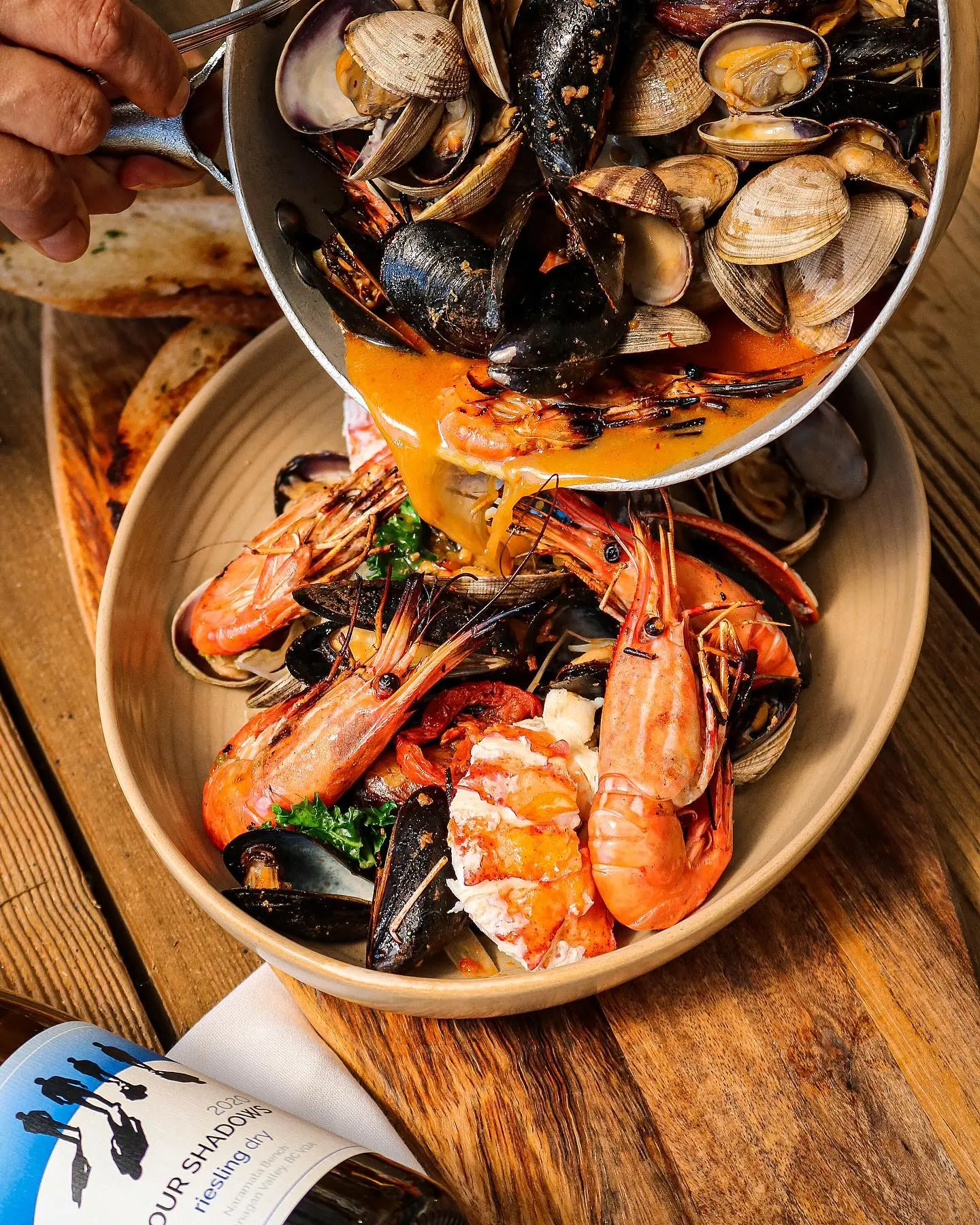
Since he started advocating for local seafood in the late 1990s, Clark has witnessed a massive shift in the mindset of his fellow chefs. He is far from a lone voice now, and in fact, is surrounded by like-minded champions of the local and the sustainable. “I’m very hopeful. When I look around, I see so much young talent,” he says. He continues: “This generation is more interested in the welfare of the planet. They’re much more interested in the provenance of a product.”
Summer Stuart, executive chef at the Vancouver Fish Company, first got converted to sustainability when she moved back to Vancouver from Calgary when she was twenty-two and found a job at then Nu Restaurant with Robert Clark. “I was into it right away. Everything he talked about and everything that meant something to him, I was completely all about. It was about sustainability. It was about making sure that we have fish and seafood for ourselves and our children in the future,” she says.
Clark’s passion for sustainability has stayed with Stuart over the course of her career. Today, at the helm of a seafood restaurant on Granville Island, she takes her responsibility seriously. In addition to receiving regular guidelines, updates, and reports from Ocean Wise, Stuart very much appreciates the vetting they do of her seasonal menus to make sure she’s sourcing sustainably. “They’ve made it really easy for restaurants. They take the guesswork out of it for everybody because it’s so complex,” she says.
Stuart will keep some popular sustainable seafood items on her fall menu, like Qualicum Bay scallops and lingcod, but also wants to expand into new territory: “I’d like this menu to be approachable and appeal to everybody but still offer some interesting suggestions in terms of some less utilized sustainable items.” She wants to include uni (sea urchin) and also local sturgeon that is raised through sustainable land-based farming. Stuart likes sturgeon especially because it’s hearty and less finicky compared to other fish, like halibut. “It cooks more like chicken. It goes on the grill. It can be on a skewer. It can be braised. It can be thrown into a soup,” she says. Stuart is currently considering giving it a hard sear and then finishing it in the oven; meanwhile, other cooks in her kitchen are playing around with making chicharron out of the sturgeon skin.
Stuart sees the role of Vancouver chefs as crucial in the fight for sustainability. “I rely on Ocean Wise a lot for information. It’s our responsibility to pass that on, to believe in it, and to hold ourselves to it,” she says. She cites the excitement over spot prawn season as evidence that consumers are increasingly recognizing the value of local sustainable seafood.
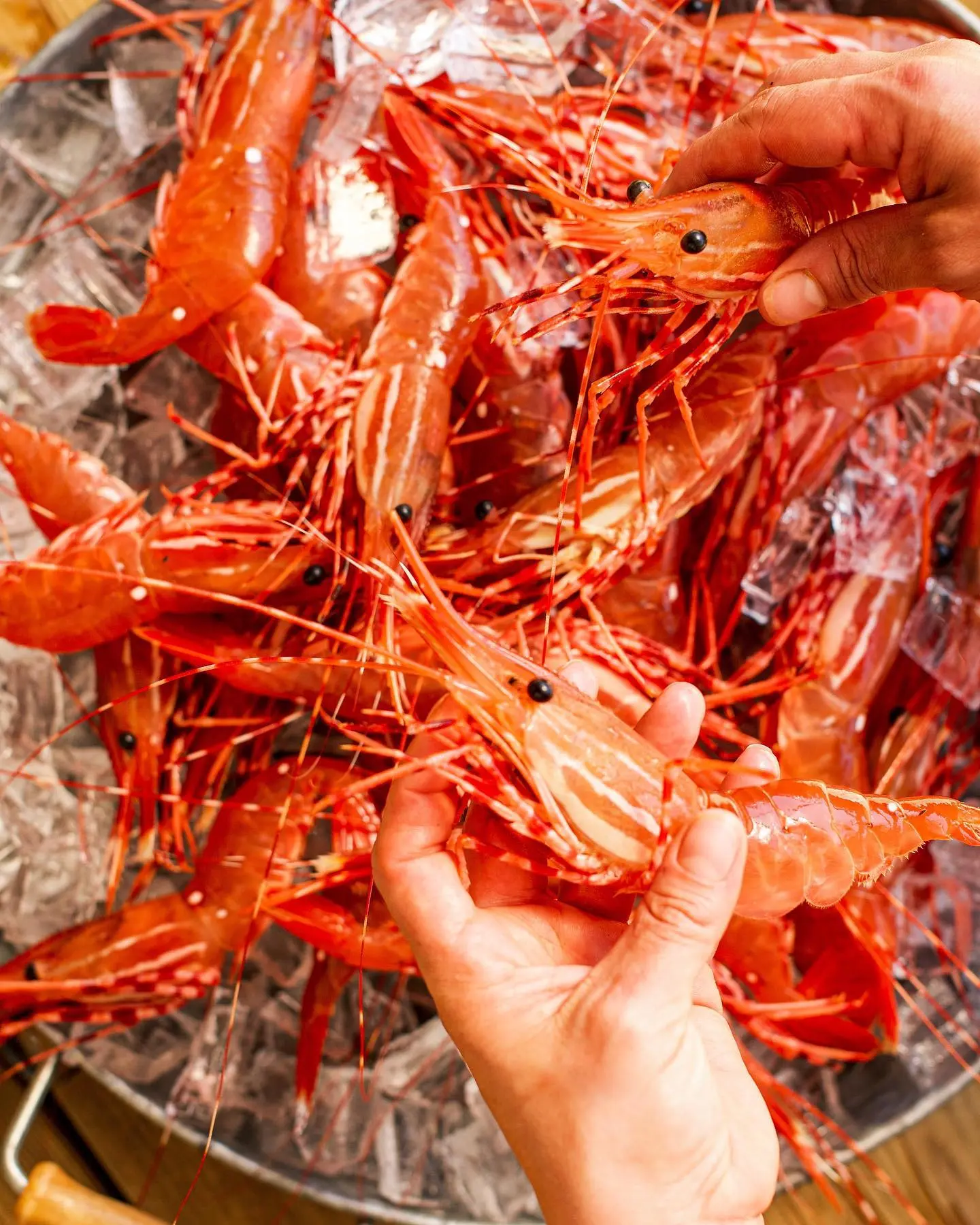
It’s that kind of passionate commitment that has placed and will continue to place Vancouver at the forefront of seafood sustainability. “We have everything it takes to propel Vancouver as a culinary destination into the future because of the quality of our ingredients and the young talented chefs that we have,” says Clark.
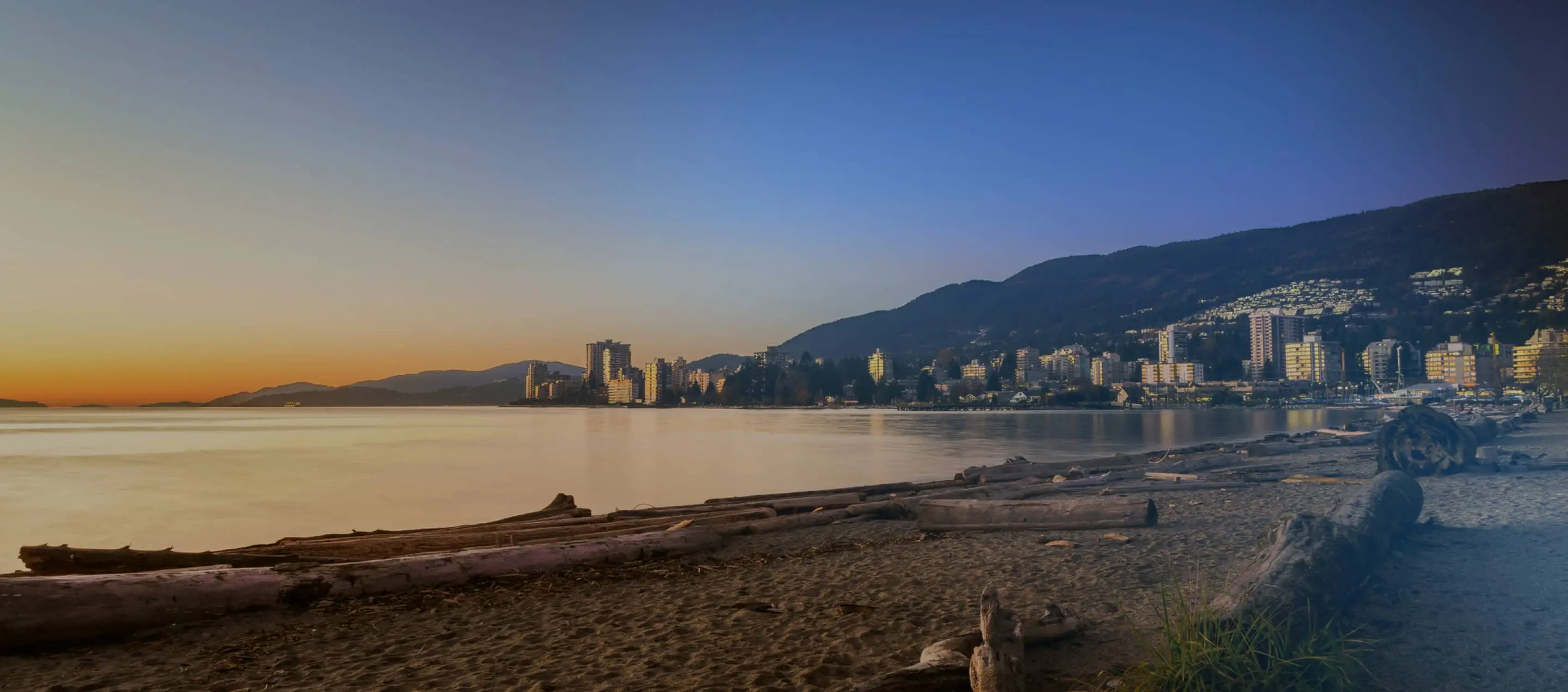
Hungry
for
fresh
eats?